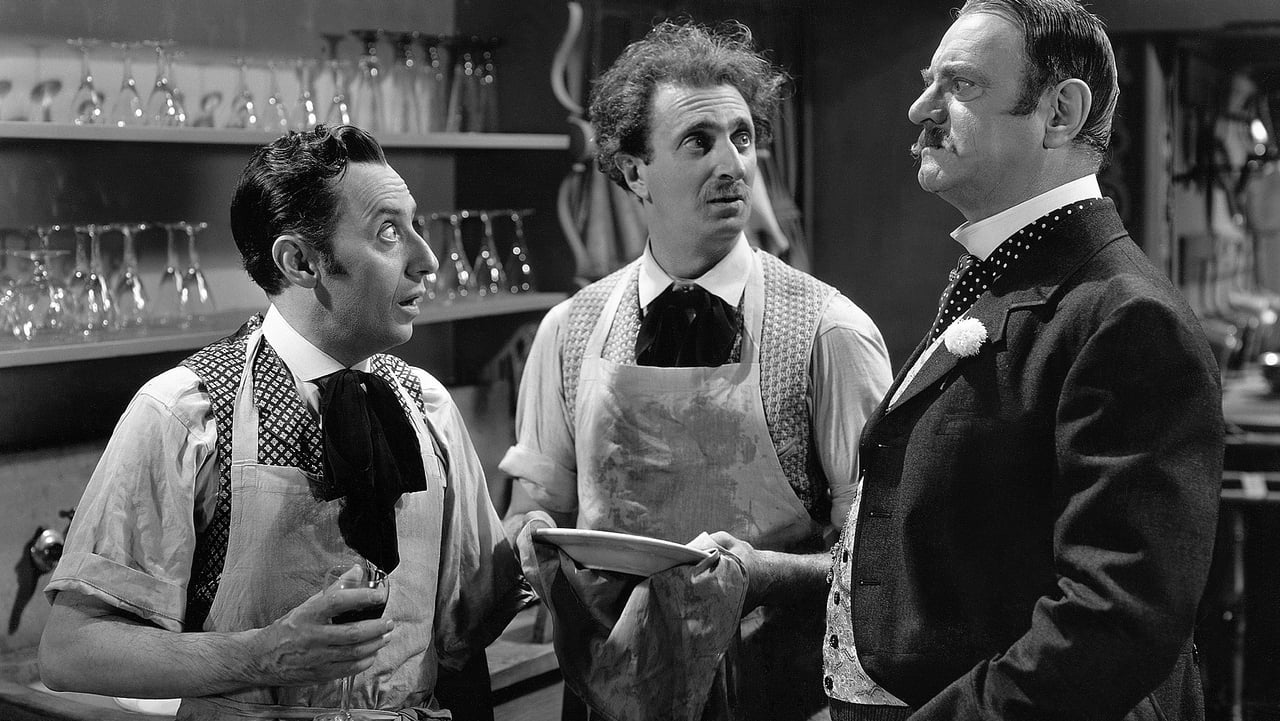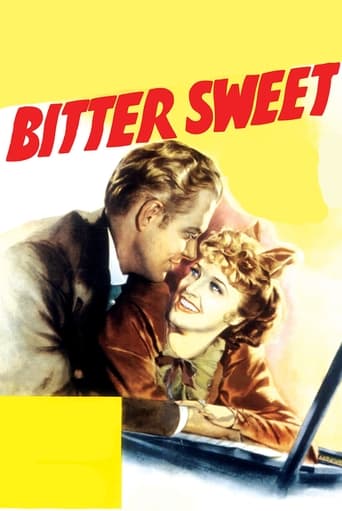



Brilliant and touching
The film makes a home in your brain and the only cure is to see it again.
View MoreGood films always raise compelling questions, whether the format is fiction or documentary fact.
View MoreOne of the most extraordinary films you will see this year. Take that as you want.
View MoreI've seen the Noel Coward operetta on which this movie is - loosely - based, and I didn't much care for that either. MacDonald/Eddy movies worked when the music was good and well staged, but that isn't the case here. The one big number, "I'll see you again," is over within the first five minutes. From there on, it's just forgettable imitation Viennese operetta music ("Tokay," "Ziguener," etc.).Normally, this is one of their movies that I take a pass on.But when I watched it today, I couldn't help notice how heavily it stresses that England is sexually and emotionally very repressive. The romantic couple flees to Vienna, which is described over and over as "gay." When they arrive, they are met by several of the male lead's male friends, who are very effusive in expressing their delight at seeing him.Which set me to wondering: was someone - Coward, the screenwriter - trying to set this up as an allegory of gay Coward's own feelings of sexual repression in England? The male lead, very much unlike in most movie operettas of the time, gets killed in the end, and by a military bully, just the sort who would pick on a gay man. (Though the male lead in this movie is certainly not presented as gay.)Just a thought.
View MoreEven though Jeanette MacDonald gets to make light fun of her sometimes shrill singing voice (where her lyrics are sometimes impossible to understand) and has a brief can-can musical number (showing off a rarely seen ability to dance), the movie surrounding those moments is colorless, even though it was grandly photographed in color. All the color does is show off her flaming red hair, which in the final is covered by a hat that looks like a pepperoni pizza with extra mozzarella. The fact that this is set in 1890's London and Vienna rather than Italy makes her choice of millinery attire somewhat odd.In London, she is a singer being coached by operetta composer Nelson Eddy, obviously in love with him even though she is engaged to marry the stuffy Edward Ashley. She suddenly decides to break off her engagement to Ashley and runs off to Vienna where as a street singer, she is broke enough to trade singing lessons from a grocer whose untalented daughter sings like the chicken she is making the exchange for. She is noticed by the lecherous Baron George Sanders who arranges for her to get a job at a casino while Eddy tries to sell his unproduced operetta. Ashley arrives in Vienna as Sanders is making unwelcome advances to her with his new wife, a babbling female with a horrendous speech impediment, obviously added just to make her already annoying character seem even more annoying. When a drunken Sanders goes too far in his pursuit of the married MacDonald, Eddy steps in, setting up for a similar finale that we had already seen them do in "Maytime" and would be done better in MacDonald's remake of "Smilin' Through".The ending probably had ladies weeping in 1940 but is so predictable. Sanders' character so unlikable that it makes him difficult to watch. He was best playing villains who were so urbane and sophisticated that their suave villainy was just one characteristic to their multi-layered personalities. The stars struggle with many bits made to be comical (which essentially stop the plot for shtick) but somehow the results are as empty as Sanders' baron's heart. Practically every character actor of eastern European decent (Herman Bing, Felix Bressart) pop in to predictable effect. W.S. Van Dyke, after such a unique career highlighted by mostly non-musicals, seemed an odd choice for this air-filled soufflé, so the result is even less than mixed.
View MoreNo wonder Noel Coward had such low esteem of what Hollywood could do to his plays. Judging by what comes out on "Bitter Sweet", Mr. Coward had a case. The problem seems to be in the adaptation of the material. Lesser Samuels took too many liberties with the musical, and in a lot of ways, it seems this is a rework of "Maytime", as other contributors to this forum have expressed.The film had all the right elements going for it, but somehow, this typically English musical is anything but English. W. S. Van Dyke, a director who worked extensively in the genre doesn't appear to have been inspired by the material. MGM gave this film its usual lavish production, yet, this Technicolor film lacks some of the magnificent look the studio gave "Maytime", a black and white movie.Jeanette MacDonald has a bigger role than her co-star. She also has a more passable British accent, whereas Mr. Eddy, who is supposed to be Austrian, doesn't sound credible. George Sanders is seen as the Baron Von Tranisch, a cad who has an eye for spotting good looking women. Ian Hunter, Sig Rumann, and others are seen in supporting roles."Bitter Sweet", while enjoyable, is not one the best films the singing stars duo did for MGM.
View MoreNoel Coward, who wrote both the words and the music of the original 1929 operetta, called this movie "a nauseating hotchpotch of vulgarity, false values, seedy dialogue, stale sentiment, vile performances, and abominable direction." He found it so offensive that he never again allowed Hollywood to have anything to do with his musicals, and put a clause in his will to that effect.I entirely agree with his evaluation. No one who has had the chance to see the brilliant and heartbreaking original play can look on this bastard tinsel and frou-frou offspring without feeling first incredulity, then disgust, and finally a deep personal hatred for everyone involved in the nasty thing.By the way, the connection between this movie and "Maytime" is complicated. You see, some Hollywood suit didn't like the original show, "Maytime", but wanted to use the title, and so they ripped off the plot of "Bitter Sweet" and combined it with lots of songs that aren't from either "Maytime" or "Bitter Sweet", apart from just one actual "Maytime" song, and called the result "Maytime". (Eddy and MacDonald's movie called "The Chocolate Soldier", similarly, is the plot of the play, "The Guardsman", mixed with some of the songs from "The Chocolate Soldier", but none of the plot.) So when they decided to make "Bitter Sweet", they kept the same basic plot, but dumbed it down, creating this abortion.
View More